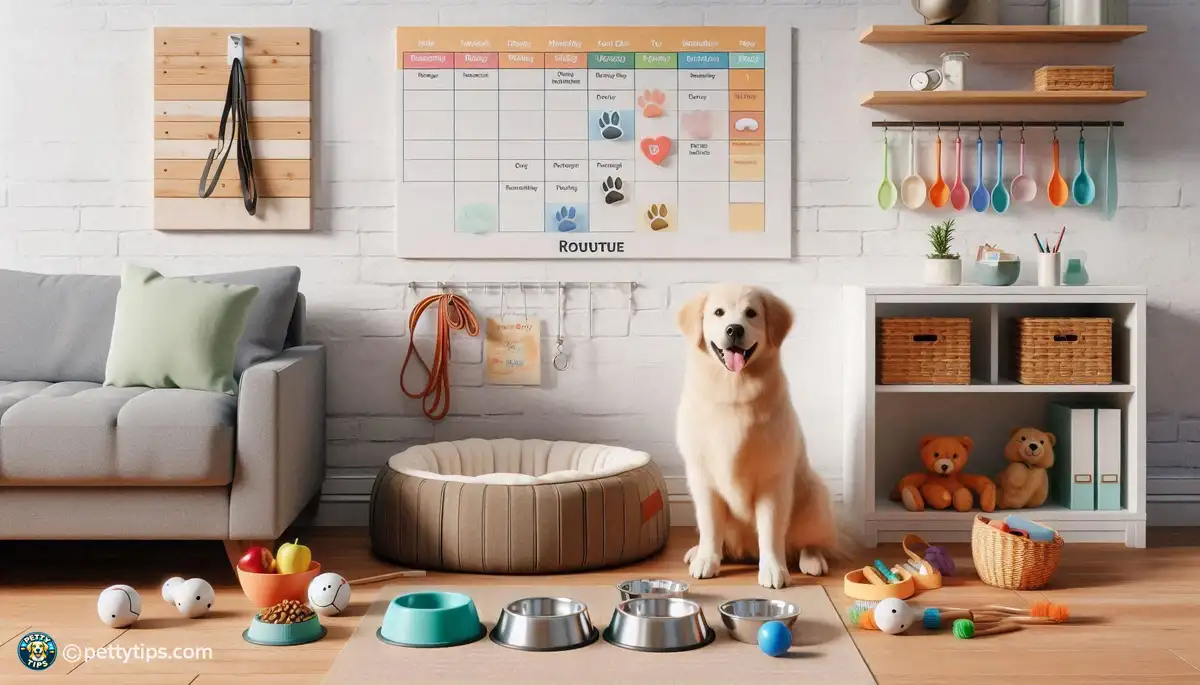- Home
- Pet Adoption
- Mastering Your Pets Daily Routine: A Comprehensive Guide
Mastering Your Pets Daily Routine: A Comprehensive Guide

The Psychological Benefits for Your Pet
Creating a consistent routine for your pet isn't just about convenience for you—it's about providing structure and security for them. Dogs and cats are creatures of habit, and having a predictable routine can significantly reduce their stress levels and anxiety. When they know what to expect, they feel more confident and secure in their environment.
The Behavioral Impact on Your Pet
Consistency in feeding, walking, and playtime can also have a profound impact on your pet's behavior. By establishing a routine, you're effectively communicating boundaries and expectations. For example, regular feeding times can help prevent begging or food aggression, while scheduled playtime can channel your pet's energy in a positive direction, reducing destructive behaviors like chewing or scratching.
Building Trust and Bonding
Consistent routines create opportunities for bonding between you and your pet. When you consistently meet their needs at the same times each day, your pet learns to trust you as their caregiver. This trust forms the foundation of a strong, healthy relationship, allowing you to better understand and communicate with your furry friend.
Crafting a Feeding Schedule
Choose the Right Food and Portion Sizes
Selecting the appropriate food for your pet is crucial for their health and well-being. Whether you're feeding kibble, wet food, or a raw diet, make sure it meets their nutritional needs. Consult with your veterinarian to determine the right portion sizes based on your pet's age, size, and activity level.
Establish Consistent Meal Times
Consistency is key when it comes to feeding your pet. Aim to feed them at the same times each day, ideally spaced out into two or three meals. This helps regulate their metabolism and prevents overeating. Avoid leaving food out all day, as free-feeding can lead to obesity and other health issues.
Monitor Eating Habits
Pay attention to your pet's eating habits and adjust their feeding schedule or portion sizes as needed. If they're consistently leaving food in their bowl or showing signs of hunger between meals, you may need to adjust their feeding routine. Similarly, if they're gaining or losing weight unexpectedly, consult with your veterinarian to ensure they're getting the right amount of food.
Nurturing Exercise with Regular Walks
Understand Your Pet's Exercise Needs
Different pets have different exercise requirements based on factors such as breed, age, and health status. While some dogs may need a long daily walk to burn off excess energy, others may be content with shorter, more frequent outings. Similarly, indoor cats may benefit from interactive play sessions to keep them mentally and physically stimulated.
Make Walks Enjoyable for Your Pet
Walking should be an enjoyable experience for both you and your pet. Choose routes that offer a variety of sights and smells to keep them engaged and stimulated. Use positive reinforcement techniques like treats or praise to encourage good behavior on walks, such as walking politely on a leash or greeting other dogs calmly.
Be Consistent and Flexible
Consistency is important when it comes to walking your pet, but it's also essential to be flexible. Life can be unpredictable, and there may be times when you need to adjust your walking schedule due to work commitments, weather conditions, or other factors. The key is to maintain regularity as much as possible while being adaptable to changes when necessary.
Fostering Playtime for Mental and Physical Health
Understand the Importance of Play
Play isn't just a frivolous activity—it's essential for your pet's overall well-being. Playtime provides mental stimulation, helps prevent boredom, and strengthens the bond between you and your pet. Engaging in regular play sessions can also help alleviate stress and anxiety, promoting a happier, healthier pet.
Provide a Variety of Toys and Activities
Offering a variety of toys and activities can keep playtime fun and engaging for your pet. Experiment with different types of toys, such as interactive puzzles, balls, and stuffed animals, to keep them mentally stimulated. Rotate toys regularly to prevent boredom and encourage exploration.
Set Aside Dedicated Playtime
Make playtime a priority in your pet's daily routine by setting aside dedicated time for it each day. Whether it's a game of fetch in the backyard, a session of laser pointer chase for your cat, or a tug-of-war with their favorite rope toy, having designated playtime helps ensure that your pet gets the mental and physical stimulation they need to thrive.
Conclusion: The Power of Routine in Pet Care
Establishing a routine for feeding, walking, and playtime is one of the most important things you can do for your pet's health and happiness. By providing structure and consistency in their daily lives, you're creating a sense of security and predictability that promotes overall well-being. So, take the time to craft a routine that works for both you and your furry friend, and watch as your bond grows stronger with each passing day.
